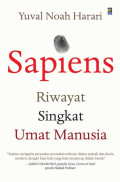
Sapiens
SELAMA dua setengah juta tahun, berbagai spesies manusia hidup dan punah di Bumi, sampai akhirnya tersisa satu, Homo sapiens, Manusia Bijaksana, sejak seratusan ribu tahun lalu. Namun spesies ini b…
- Edisi
- -
- ISBN/ISSN
- 9786024816025
- Deskripsi Fisik
- 536 hlm ,23 cm x 15 cm.
- Judul Seri
- -
- No. Panggil
- 599.938 Har S
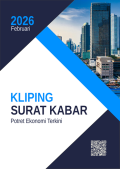
Kliping Surat Kabar Februari 2026
Kliping Berita Ekonomi bulan Januari 2026.
- Edisi
- -
- ISBN/ISSN
- -
- Deskripsi Fisik
- -
- Judul Seri
- -
- No. Panggil
- K 025.342
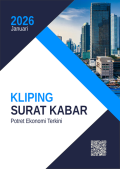
Kliping Surat Kabar Januari 2026
Kliping Berita Ekonomi bulan Januari 2026.
- Edisi
- -
- ISBN/ISSN
- -
- Deskripsi Fisik
- -
- Judul Seri
- -
- No. Panggil
- K 025.342

Achieving UN Sustainable Development Goal 8: Economic Growth and Decent Work …
The book gathers global evidence and policy analysis to show how sustainable growth and decent work—core aims of Sustainable Development Goals (SDG) 8—can be pursued without harming the environ…
- Edisi
- -
- ISBN/ISSN
- -
- Deskripsi Fisik
- -
- Judul Seri
- -
- No. Panggil
- 331.88 Del A

Circular and Transformative Economy Advances towards Sustainable Socio-econo…
This book maps a shift from linear to circular economies, showing how waste, water, food, and sanitation systems can be transformed to support sustainability, equity, and resilience. Through global…
- Edisi
- -
- ISBN/ISSN
- -
- Deskripsi Fisik
- -
- Judul Seri
- -
- No. Panggil
- 338.7 Nha c

Capitalism Reconnected: Toward a Sustainable, Inclusive and Innovative Market…
This book argues that European capitalism has strayed — marred by inequality, environmental strain, and short-term thinking — and offers a roadmap to reconnect markets with core values like inc…
- Edisi
- -
- ISBN/ISSN
- -
- Deskripsi Fisik
- -
- Judul Seri
- -
- No. Panggil
- 330.12 Pet C

The Future of Labour: How AI, Technological Disruption and Practice Will Chan…
As AI and digital tools remodel workplaces globally, this book shows how jobs, institutions, and livelihoods must adapt. From hybrid work and gig platforms to automation and welfare-state reforms, …
- Edisi
- -
- ISBN/ISSN
- -
- Deskripsi Fisik
- -
- Judul Seri
- -
- No. Panggil
- 331.25 Lar T
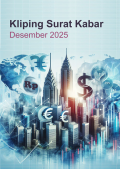
Kliping Surat Kabar Desember 2025
Kliping Berita Ekonomi bulan Desember 2025.
- Edisi
- -
- ISBN/ISSN
- -
- Deskripsi Fisik
- -
- Judul Seri
- -
- No. Panggil
- K 025.342
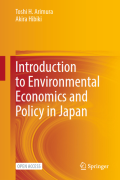
Introduction to Environmental Economics and Policy in Japan
This textbook uses Japan’s policy experiences—carbon pricing, waste-fees, air-emissions controls—to illustrate how economic theory informs environmental policy. It leads readers from market-f…
- Edisi
- -
- ISBN/ISSN
- -
- Deskripsi Fisik
- -
- Judul Seri
- -
- No. Panggil
- 333.7 Ari I
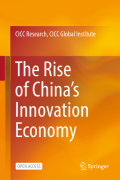
The Rise of China’s Innovation Economy
This book traces China’s transformation from a manufacturing-based economy to a global innovation powerhouse. It highlights how government policy, entrepreneurship, and research institutions driv…
- Edisi
- -
- ISBN/ISSN
- -
- Deskripsi Fisik
- -
- Judul Seri
- -
- No. Panggil
- 338.951 Res T
 Karya Umum
Karya Umum  Filsafat
Filsafat  Agama
Agama  Ilmu-ilmu Sosial
Ilmu-ilmu Sosial  Bahasa
Bahasa  Ilmu-ilmu Murni
Ilmu-ilmu Murni  Ilmu-ilmu Terapan
Ilmu-ilmu Terapan  Kesenian, Hiburan, dan Olahraga
Kesenian, Hiburan, dan Olahraga  Kesusastraan
Kesusastraan  Geografi dan Sejarah
Geografi dan Sejarah